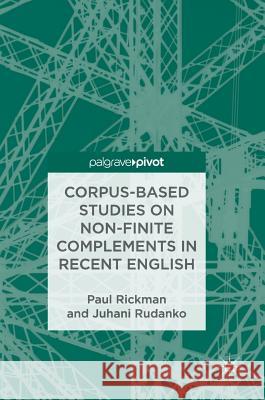Corpus-Based Studies on Non-Finite Complements in Recent English » książka
topmenu
Corpus-Based Studies on Non-Finite Complements in Recent English
ISBN-13: 9783319729886 / Angielski / Twarda / 2018 / 108 str.
This book showcases fresh research into the underexplored territory of complementation through a detailed analysis of gerunds and `to' infinitives involving control in English.











